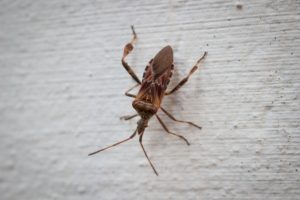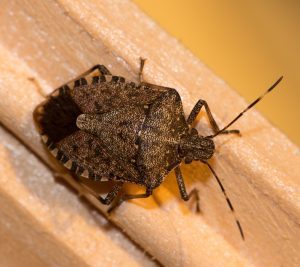WEATHER CHANGES CAN AFFECT PESTS BIG-TIME!
By Chris Williams on October 23, 2018.
In reading the latest issue of a pest control association newsletter, two headlines stood out: “In Houston: Record Year for Rats and Mice in the Attic, Due to Hurricane Harvey,” and “Wasp-Sized Mosquitoes That Bite Through Clothing Are Swarming North Carolina After Florence.” That last one might be a bit of an exaggeration but it reminds us of how often pest problems escalate after a weather event.
MORE RESOURCES MEANS MORE PESTS
On a large scale, hurricanes like Harvey or Florence can change everything in an instant. Immediately after, residents have more serious concerns than pests. But a regional change in conditions that favor certain pests such as higher temperatures, more rain, and more standing water, can mean long-lasting pest problems after the water recedes, including the prospect of disease outbreaks related to pests.
Also on that same large scale, we are noticing how an increase in global temperatures is affecting the life cycles of many insects, including ticks that spread Lyme disease, for example. More ticks are able to survive the warmer winters (see Where Do Ticks Go in the Winter?). Since it warms up earlier in spring, the ticks start feeding on blood earlier and stay active later into the fall, meaning they have a better chance of becoming infected and more time to pass Lyme disease on to more animals, including people.
OUTSIDE INSECTS WANT TO SPEND THE WINTER IN YOUR HOUSE

Western Conifer Seed Bug. Shutterstock
On a smaller scale, every fall we see how weather affects pests in our region. As pest experts, this is something we are familiar with, expect, and can plan for. In the Northeast, yellowjacket nests are dying out and mice are trying to move inside. Also at this time of year we are receiving reports of large numbers of unusual insects climbing up the outside of houses and bumbling around inside houses. These are the various plant-feeding insects such as stink bugs, seed bugs, and others that look for protected places to spend the winter when temperatures drop and their food plants are no longer available (see Why Are There Plant Bugs in My House?).

Brown Marmorated Stink Bug. Shutterstock
Often lots of them show up together, waiting and looking for ways to get inside. While these overwintering insects don’t necessarily choose houses for their “pseudo-hibernation,” the attic of a house provides better shelter than a tree hole or a woodpile. If your house has lots of little openings, they’re in! The time to put controls in place for these migrating insects is in late summer before they actively seek winter shelter. But fear not, we may still be able to help. Give Colonial Pest a call now before these fall insects move into your home.